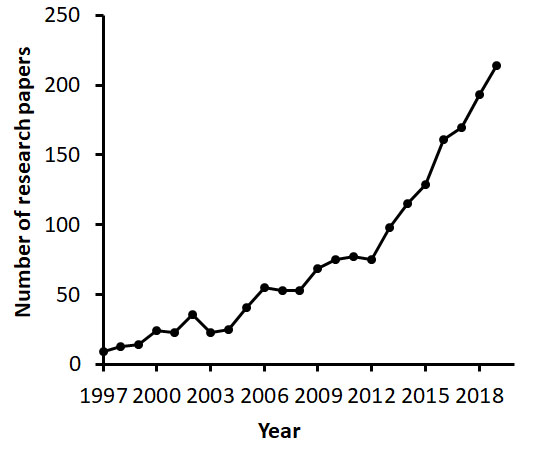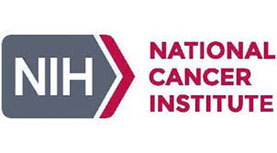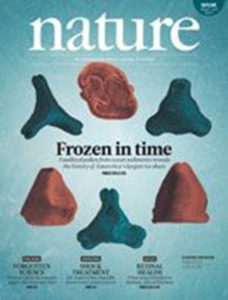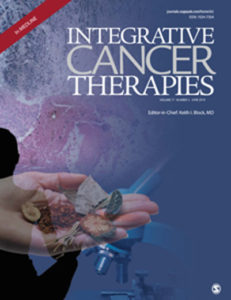Acupuncture for cancer support treatment
Overview
Since 1997 NIH consensus conference first reported acupuncture benefits on cancer care, using acupuncture to treat a variety of symptoms and conditions associated with cancer and the side effects of cancer treatments has been increased in the United States. Many cancer centers, such as Dana-Farber Cancer Institute (DFCI) in Boston, Memorial Sloan-Kettering Cancer Center in New York, and M.D. Anderson Cancer Center in Houston, are integrating acupuncture into cancer care in the U.S., It is estimated the range about 15-30 % of cancer patients have received acupuncture treatments in United State each year.
Research papers for cancer care by using acupuncture have increased 10 times during last 10 years. Overall 63% of the studies reported that acupuncture provides clinical benefit for cancer patients with treatment-related side effects including pain, chemotherapy-induced leukopenia, fatigue, xerostomia, insomnia, anxiety, nausea and vomiting.


The National Cancer Institute’s Conference
Acupuncture for Symptom Management in Oncology:
State of the Science, Evidence, and Research Gaps
JNCI Monographs, Volume 2017, Issue 52, 1 November 2017,
Key Findings
Use of acupuncture in conjunction with pharmaceutical treatment can be more effective for treating cancer-related pain than pharmacotherapy alone. Acupuncture relieves pain in cancer patients with aromatase inhibitor-associated arthralgia, but its effects on chemotherapy-induced peripheral neuropathy are mixed, suggesting that more information is needed on the timing, dosing, and mode of acupuncture for that type of pain. A short course of acupuncture appears to reduce fatigue for most patients, but prolonged acupuncture does not appear to have additional benefit for fatigue. Evidence of acupuncture’s effect on hot flashes is too limited to recommend for or against its use to treat this symptom.
Although the use of acupuncture to treat chemotherapy-induced nausea and vomiting is widely accepted, its effectiveness should be evaluated against new anti-emetic guidelines. Clinical trials are studying the effects of acupuncture on the prevention and treatment of radiation-induced xerostomia. The evidence base on effectiveness of acupuncture in children with cancer is limited, and more research needs to be done to understand appropriate needle size, treatment duration and frequency, and individualizing therapy. The symposium identified ten key areas on which to focus to accelerate understanding of and build the evidence base for the use of acupuncture to treat cancer symptoms.

A "Nature" research paper supports acupuncture helps cancer treatments
An recent large clinic trial studied 226 breast cancer woman at 11 cancer center across United State. The study found after a six-week course of acupuncture treatment, ‘worst pain ‘ in the acupuncture group was about one point lower on a scale of zero to ten than in either the sham or no effect. 53% patients improved pain scale at least two points in acupuncture groups, which is almost doubled increases compared to control of both sham and no-acupuncture groups. The pain reduced in acupuncture groups is larger than is seen with duloxetine, an antidepressant used to help reduce pain in people with cancer. Unlike with duloxetine, the benefits persisted after the acupuncture course had finished.

A Cancer therapies' research paper showed acupuncture produces a measurable benefit for cancer care.
A pilot, single-armed prospective clinical trial studied 32 patients with advanced cancer who receive 12 acupuncture sessions over 8 weeks with follow-up at weeks 9 and 12. Symptom severity was measured before and after each acupuncture session. Among all 32 assessed, patients reported improvement immediately post-treatment in anxiety, fatigue, pain, and depression. Symptoms and quality of life (QOL), which measures pain severity and interference, physical and psychological distress, life satisfaction, and mood states, showed improved scores during treatment, with sustained benefit at 12 weeks. This pilot study demonstrates that an 8-week outpatient acupuncture course is feasible for advanced cancer patients and produces a measurable benefit.
Acupuncture for cancer-related fatigue
Cancer-related fatigue is the most common side effect of cancer treatment. Over 90% cancer patients suffer from fatigue, 30 -60 % of them reported moderate to severe fatigue during cancer treatment. Approximately one-third of patients can experience persistent fatigue for up to 10 years.
Several prospective trials have shown acupuncture may benefit patients with chemotherapy related fatigue. A randomized modified, double-blinded, placebo-controlled trial studied 54 cancer patients who had surgery alone or in combination with chemotherapy. The control arm consisted of sham acupuncture mimicking true acupuncture. Results showed that patients fatigue in the acupuncture group had a better improvement than in the control arm. Physical and mental distress improved during treatment. Other clinic trials studied 13,80 patients with persistent fatigue who had previously completed cytotoxic therapy showed that acupuncture resulted in a 31.3% improvement in the baseline fatigue score.
Acupuncture for Cancer pain
Pain is a long-standing and unresolved clinical issue among cancer patients and significantly impacts their quality of life. Research showed that 55% of cancer patients still suffer from various pain after receiving cancer treatments.
Several randomized controlled clinical trials have suggested that acupuncture can be used for the following conditions to manage pain among cancer patients: 1) chronic constant neuropathic pain in post-cancer therapies; 2) Post-thoracotomy pain in patients with operable non-small cell lung carcinoma; 3) Other post-operative pain in patients with breast cancer, bladder cancer, prostate cancer, and ovarian cancer.Interest in acupuncture has grown because of concerns over the use of opioid-based drugs, which have nasty side effects and are extremely addictive. Almost 90% of US National Cancer Institute-designated cancer centers suggest that patients try acupuncture.
Acupuncture for cancer related Depression and anxiety
Clinic data has shown that up to 1 in 4 people with cancer have clinical depression. A study invested 67 randomly assigned patients. Compared with no treatment group, acupuncture produced significant improvements in fatigue (P=.0095), anxiety (P=.044), and depression (P=.015) during the 12 week intervention and follow up period. In contrast, Control group did not produce significant reductions in fatigue or anxiety symptoms.
Acupuncture for cancer-related hot flashes
Hot flashes are common side effects for cancer patients, especially women, NIH estimates that hot flashes impact about two out of three postmenopausal women who have had breast cancer.
Using acupuncture for hot flashes in breast cancer patients is another active area of clinical study. Sweden reported a more than 50% reductionof hot flashes and other associated symptoms in breast cancer patients after receiving a 12 week electroacupuncture intervention. There was a suggestion in this study that the symptom reduction effect was durable, lasting up to 6 months.
Acupuncture for cancer-related Leukopenia
The majority of cancer patients develop neutropenia, due to chemotherapy. Cancer patients with neutropenia increases a risk of infection and disrupts cancer treatment.
Several studies have suggested that acupuncture could be effective in reducing marrow suppression related leukopenia in patients undergoing chemotherapy. An exploratory meta-analysis of clinical trials reported that acupuncture increases in leukocytes for patients during chemotherapy or chemo-radiotherapy, with a weighted mean difference of 1,221 WBC/uL on average (p <0001).
Acupuncture and cancer peripheral neuropathy
Peripheral neuropathy can develop at any phase of the cancer journey, and even more common in cancer patients receiving chemotherapy. It has estimated that 30 to 40 % of patients treated with chemotherapy develop peripheral neuropathy. A recent study investigated effect of acupuncture on 28 breast cancer patients who had been concomitantly treated with chemotherapy and had chemotherapy-induced peripheral neuropathy (CIPN). The patient received 1-2 weekly sessions of both acupuncture and reflexology. . Overall, 93 % patients had complete resolution of CIPN symptoms. 28 % patients who presented with grades 3 to 4 neuropathy were symptom-free at the 12-month evaluation. Only 2 patients with grades 1 to 2 neuropathy still reported symptoms at 12 months.
Acupuncture and Radiation-induced xerostomia
Xerostomia, or dry mouth, is considered a significant factor underlying dysphagia. Several pilot clinical studies suggest that acupuncture may improve xerostomia caused by radiation therapy in patients with head and neck cancers. Blom first reported acupuncture treatment induced a persistent salivary flow rate among a group of patients with severe xerostomia. A long-term follow up (up to 32 months) further confirmed his findings. Johnstone and his colleagues used acupuncture for patients with pilocarpine-resistant xerostomia after radiotherapy for head and neck cancer. He found a 70% response rate, i.e., an increase of 10% or more from the baseline Xerostomia Inventory. Wong and his colleagues reported a phase I-II study using transcutaneous electrical stimulation. Forty-six patients were randomized among three groups with different acupuncture points. After six weeks of treatment, for 37 patients who completed the treatment course, the salivation increase was statistically significant at both 3-and 6- month follow-ups. Studies using fMRI found a relationship between stimulating acupuncture point, LI-2, located at the base of index finger, and the activation of the brain function area responsible for salivary production.
Acupuncture for dyspnea among patients with lung cancer
Dyspnea is not only presents in up to 87% of patients with lung cancer, but also highly prevalent among cancer patients without direct lung involvement. A pilot study aimed to evaluate the feasibility and preliminary effectiveness of acupuncture for dyspnea among patients with lung cancer. The treatment consisted of 10 weekly acupuncture sessions, with a follow-up visit 4 weeks after therapy. The primary outcome was dyspnea severity as measured using a validated Numerical Rating Scale (NRS) of 0 to 10 (10 being most severe soreness of breath imaginable). The study showed that acupuncture was well tolerated; adverse events were mild and self-limited. Mean (SD) dyspnea scores on the NRS improved from 6.3 at baseline to 3.6 (1.9; P = .003) at the end of treatment and 3.2 (2.3; P = .008) at follow-up. Fatigue and quality of life also improved significantly with acupuncture (P < .05). Conclusion. Among patients with lung cancer, acupuncture was well tolerated and exhibited promising preliminary beneficial effects in the treatment of dyspnea, fatigue, and quality of life. Performing a trial in this population appears feasible.
Reference
1.Weidong Lu , Elizabeth Dean-Clower, Anne Doherty-Gilman, David S Rosenthal, The Value of Acupuncture in Cancer Care, Hematol Oncol Clin North Am, 2008 Aug;22(4):631-48. PubMed
2. Fengxia Liang, Edwin L. Cooper, HuaWang,1 Xianghong Jing, Juan G. Quispe-Cabanillas, and Tetsuya Kondo, Acupuncture and Immunity, Evidence-Based Complementary and Alternative Medicine,Volume 2015, Article ID 260620. PubMed
3. Alexander Molassiotis, Joy Bardy, Jennifer Finnegan-John, Peter Mackereth, David W Ryder, Jacqueline Filshie, Emma Ream, Alison Richardson, Acupuncture for Cancer-Related Fatigue in Patients With Breast Cancer: A Pragmatic Randomized Controlled Trial, J Clin Oncol, 2012 Dec 20;30(36):4470-6.PubMed
4. Kyeore Bae, Hwa-Seung Yoo, Gillian Lamoury, BMed, Frances Boyle, David S. Rosenthal, and Byeongsang Oh,Acupuncture for Aromatase Inhibitor-Induced Arthralgia: A Systematic Review, Integr Cancer Ther, 2015 Nov;14(6):496-502.PubMed
5. Rebecca Asadpour, Zhiqiang Meng, Kerstin A Kessel , Stephanie E Combs, Use of Acupuncture to Alleviate Side Effects in Radiation Oncology: Current Evidence and Future Directions, Adv Radiat Oncol, 2016 Aug 18;1(4):344-350.PubMed
6. Huaxing Wu, Kun Wang, Guixian Li, Dexin Meng, Jiacheng Han, Guonian Wang, Y U Li, Effects of Transcutaneous Acupoint Electrical Stimulation on the Imbalance of Th 1, Th 2, Th 17 and T reg Cells Following Thoracotomy of Patients With Lung Cancer, Exp Ther Med, 2016 Feb;11(2):495-502.PubMed
7. Jo Marchant, Acupuncture in Cancer Study Reignites Debate About Controversial Technique, Nature, 2017 Dec 14;552(7684):157-158.PubMed
